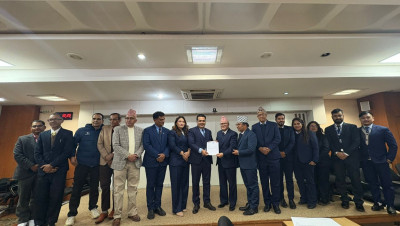The Dual Character of the Government
By: Rusha Thapa, Bhaktapur
The government has long been distributing public land in the name of squatters, landless people, and Dalits. Since 2046 B.S. (1990 A.D.), successive governments have handed out state-owned land situated along rivers, forests, and various other areas to such communities. This practice is still ongoing.
Millions of ropanis of government land have already been distributed in the name of squatters, the landless, and Dalits. But does the government actually know whether these recipients are truly landless? It seems not. Without conducting any detailed studies or factual investigations, the government has been recklessly issuing land ownership certificates to people under these categories.
This has led to the rampant misuse of state property. In collusion with land mafias, brokers, legal professionals, government employees, and political party leaders and cadres, public land across the country has been captured. Vast amounts of land have been transferred into private ownership, but the government appears to be turning a blind eye.
The first land survey in Nepal took place in 2021 B.S. (1964 A.D.), when land owned by the state was returned to individual citizens. Later, in 2028 and 2032 B.S., follow-up surveys were conducted for those missed previously. Thus, three rounds of land surveys were conducted across the country.
During this period, King Mahendra introduced the Land Act, which required landowners to give half of their land to those who worked on it as tenants. Thousands of tenant farmers thus became landowners. At that time, a single landowner could possess hundreds or even thousands of ropanis. Even after giving away half, they still retained large amounts of land.
In this way, many citizens became landowners due to government policies. However, today, the people are again becoming landless. Their lands are now held by banks and financial institutions, meaning the entire country’s land is essentially in the names of these entities. Millions have become squatters due to the actions of banks and financial institutions.
Hundreds of thousands of debtors have been blacklisted. Unable to cope with the pressure after their collateral was auctioned off and their names blacklisted, some have even resorted to suicide. Many have gone into hiding. These days, it's common to see lines of bank employees at ward offices, municipalities, and district administrative offices.
Why? Because banks seek approval and security arrangements from local authorities to auction off houses. While auctioning land is easy, auctioning homes is difficult since the borrower still resides there. Banks then seek help from local authorities and the Chief District Officer (CDO) for eviction.
Here lies the irony: the same government distributing land to the so-called landless is simultaneously evicting citizens from their homes. People's representatives are elected by the citizens. CDOs are government employees. Both are paid by taxpayers and are supposed to protect citizens' lives and properties. But instead, these same officials approve the seizure of people’s homes and deploy police to support bank interests.
Citizens now ask their leaders and CDOs, “You receive your salary and facilities from our taxes. How can you make us landless?” And then, the government pretends to help us again with another performance.
People are openly saying that banks and financial institutions are frauds and thieves. These institutions offer loans of 50–60 lakh rupees against collaterals worth a crore. Of this, around 10 lakh is eaten up by bank officials, directors, and staff as fees and cuts. Instead of charging the legally set 1% service fee and 16% interest, they have effectively been charging up to 80%.
Because of these high-interest rates, borrowers can’t repay their loans. After missing just three installments, banks seize properties worth crores for mere lakhs. Without bribes and connections, it's extremely difficult to get a loan. As a result, many people are forced to turn to local loan sharks.
Only politicians, their cadres, and businesspeople seem to easily obtain bank loans. A regular citizen seeking a loan for agriculture often returns disappointed. The banks are filled with the public’s deposits, but only the powerful have access to it.
Those with power don’t even need to put up collateral. For example:
Min Bahadur Gurung, owner of Bhat-Bhateni Supermarket, has taken out loans worth Rs. 53 billion from various banks using only the Bhat-Bhateni buildings—some of which are nearly unsellable—as collateral.
FNCCI President Chandra Dhakal got a Rs. 280 million loan using land in Pathivara, Taplejung, as collateral—even though the seller says he sold it for only Rs. 700,000.
Energy Minister Deepak Khadka secured Rs. 14 billion in loans using land across several districts.
Medical businessman Durga Prasai, currently jailed over a violent incident in Tinkune, took Rs. 11 billion in loans using properties in Bhaktapur and Jhapa.
UML leader Mahesh Basnet obtained Rs. 7 billion in loans against property in Bhaktapur.
These are just a few examples. Thousands of wealthy politicians and businesspeople have obtained billions in loans using weak collaterals.
The Bhat-Bhateni land in Anamnagar is said to have been government-owned before 2046 B.S. Elders recall a stream used to run there. Similar claims exist about places like Kalishthan, Hanumansthan, Bijulibazar, Ghattakulo, behind Singha Durbar–CDO office, and around Annapurna Hospital on Ramshah Path—that these lands were public, trust-owned, or unregistered (ailani).
If the government investigates, it could reclaim these lands. But if it does, the banks’ investment in the buildings there would be rendered worthless.
In Bhaktapur’s Radheradhe, the land now housing Bhat-Bhateni couldn’t even sell for Rs. 30,000 per ropani in 2047 B.S., say locals. The area is low-lying and prone to flooding. Last year, Radheradhe was completely submerged during the monsoon, and now that the rains have returned, tenants are quickly vacating.
Likewise, lands in Sallaghari, Tinkune, Duwakot, Army Barracks, Hanumante River, and Sirjananagar were declared public, trust-owned, or unregistered during the 2028 B.S. land survey. But after the political change in 2046 B.S., those lands were transferred to private ownership, and houses have since been built there.
Yet if the government begins an investigation, these lands could still be reclaimed. Banks have been giving out people’s money recklessly using weak collateral—based on access and power. This puts ordinary citizens' deposits at serious risk.
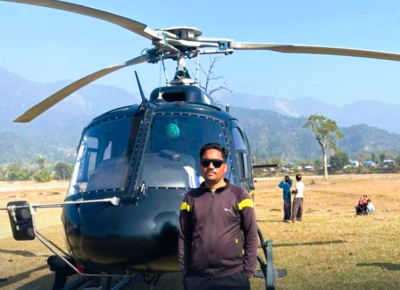
Helicopter from Jumla lands in Salyan due to bad weather
January 30, 2026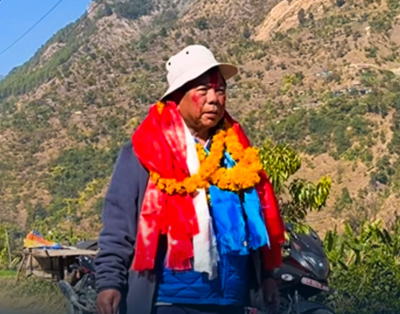
Mahabir Pun's Appeal to Voters: Do Not Sell Your Vote for Money
January 30, 2026
Helicopter from Jumla lands in Salyan due to bad weather
January 30, 2026-1769761552.jpeg)
NRNA Must Rise Above Personal Interests: Foreign Secretary Rai
January 30, 2026-1769761552.jpeg)


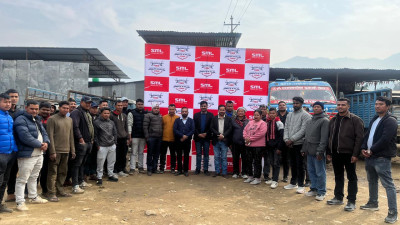
-1769665496.jpeg)


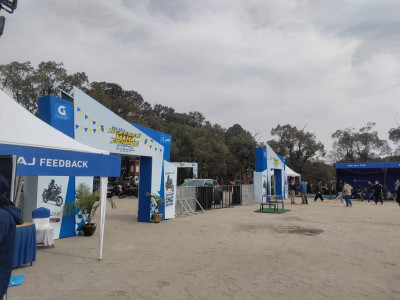
-1769407418.jpeg)
-1769770966.jpeg)
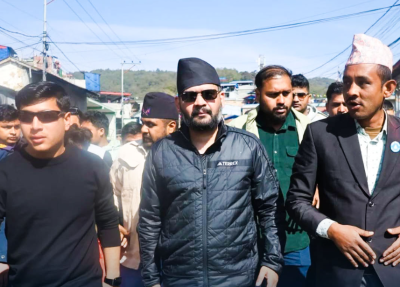
-1769760538.jpg)
